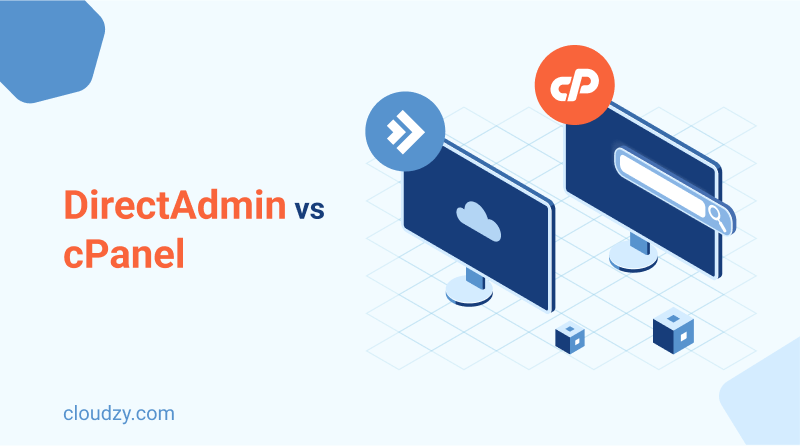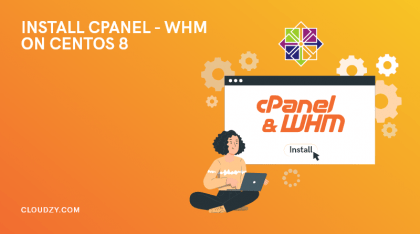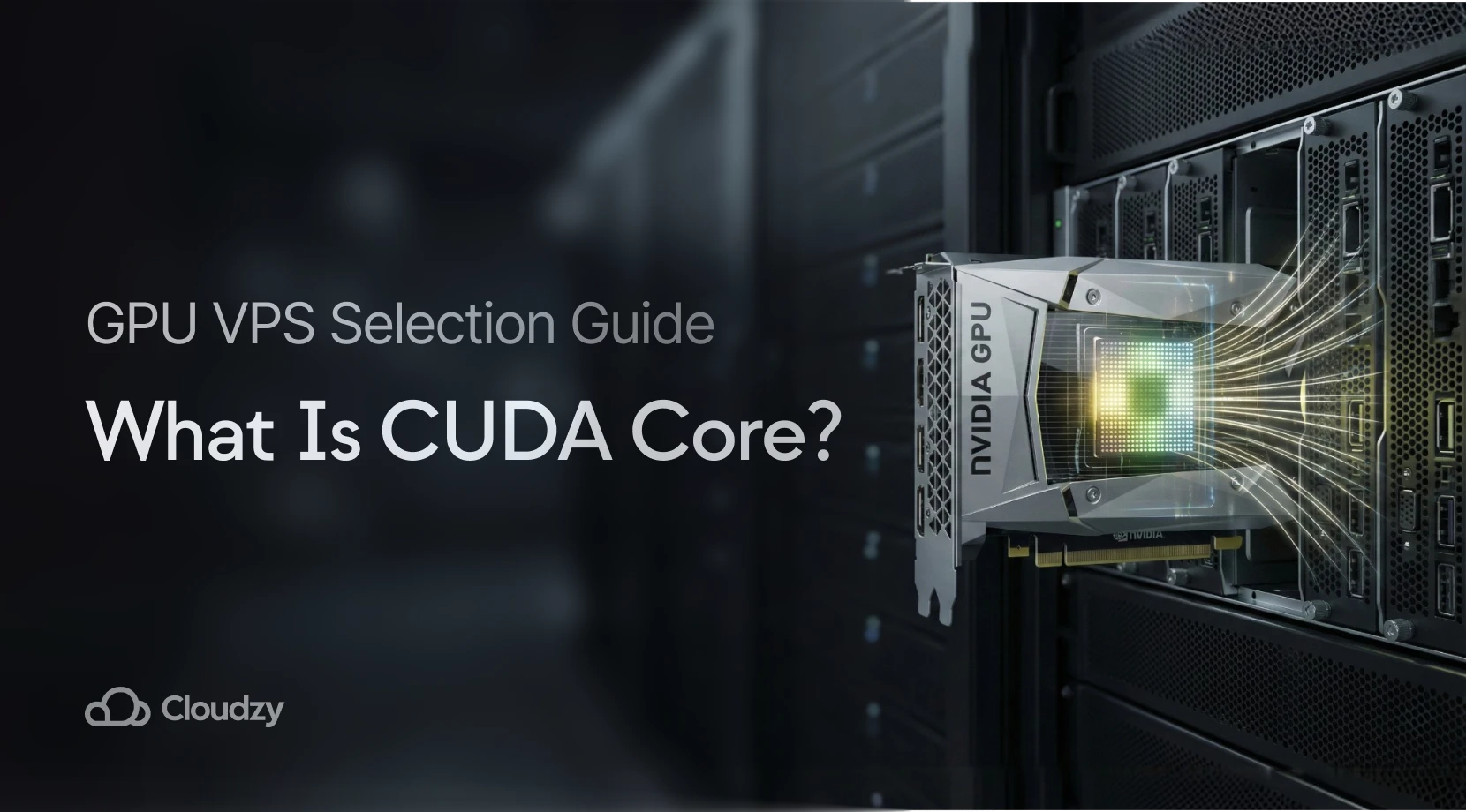Are you wondering which control panel to choose between DirectAdmin vs cPanel? If you are starting to get into web hosting, you probably want to know what control panel to choose. You might have heard about different control panels. Nevertheless, I know the confusion. You still do not know how they are different and what to choose, especially when it comes to DirectAdmin vs cPanel, as they both offer many advantages.
Web hosting control panels are like the heartbeat of any website setup. Think of DirectAdmin and cPanel as the friendly faces of the often complex world of web management. They’re not just tools; they’re your sidekicks when you’re setting up and managing your website. Nestled within the servers of your web hosts, these control panels give you the power to tweak and tailor your web hosting account just the way you like it.
Placing DirectAdmin vs cPanel and comparing them is necessary for any web admin. Both are considered highly functional and advantageous used by various brands to manage their websites. However, there are some key differences between these two platforms that should be considered before making a decision.
Before putting DirectAdmin vs cPanel, we should see what a web control panel is and then understand DirectAdmin and cPanel’s definitions to better understand their difference. After that, we’ll go through a detailed comparison of these two web hosting control panels and we’ll mention some of DirectAdmin alternatives.
What Is a Web Control Panel?
A web control panel, commonly referred to as a web hosting control panel, is an online interface designed to assist web administrators in overseeing and managing their websites. While the majority of these panels operate on Linux, there are versions tailored for Windows as well.
A reliable web control panel offers users a range of advantages, granting them comprehensive control over their websites and, at times, even the server. This is why web control panels are deemed essential in the realm of web development. Consequently, the vast majority of web hosting providers equip their customers with such a control panel.
Below, we listed some of the most distinguished web control panels that can serve as DirectAdmin alternatives:
- cPanel
- Plesk
- Webmin
- ISPmanager
- Vesta
- Centos Web Panel
- Virtualmin
- ZPanel
- H-Sphere
- ISPConfig
- vDeck
- Ajenti
Though all mentioned web control panels exist, DirectAdmin and cPanel are recognized as the most distinguished ones among web developers. This is because of the exceptional features of DirectAdmin and cPanel that provide far more benefits for the users. Let’s examine the DirectAdmin vs cPanel dispute and make a value judgment for each one.
Why Do I Need a Web Control Panel?
Imagine having a website and being in full control of it. That’s the beauty of it – you don’t have to wait for someone else to make changes, saving both your time and money. And for this autonomy? You’ll need a web control panel.
When you’re on the hunt for a web hosting provider, it’s crucial to peek under the hood and see what kind of control panel they’re offering. Think of a web control panel as your website’s dashboard. It’s where you can add fresh pages, tweak the existing ones, jazz up your site’s design, handle email accounts, organize files and folders, set up databases, and so much more.
But here’s the catch: not all hosting providers roll out the red carpet with the same control panels. So, it’s worth your while to dig a little deeper and find a provider whose control panel feels just right for you.
DirectAdmin vs. cPanel: Definition and Features
Place cPanel vs DirectAdmin by going through their definitions and the list of their features, pros, and cons.
What Is cPanel?
Many consider cPanel to be among the top-tier web control panels, and it’s no wonder with its vast user base worldwide. Often referred to simply as a ‘control panel’, cPanel empowers web enthusiasts to steer their websites with ease and efficiency. Compatible with Linux, CentOS, RedHat, and CloudLinux OS, this software boasts a suite of tools designed to make web management a breeze.
With cPanel, you’re not wrestling with intricate commands. Instead, its intuitive dashboard offers you everything at your fingertips. Whether you’re setting up a content management system, handling backups, managing emails, databases, or domain names, cPanel has got you covered.
Followings are some other features of cPanel that are highly cherished by its users:
- Quick and simple installation
- Easy to learn and use
- High performance
- Easy Email functions
- Providing complete control of the server
- Giving access to the file system
- A dual-panel structure that improves security and efficiency
- Software auto-installer
- Used in shared, dedicated, and managed WordPress hosting
While cPanel has many advantages, there are also some disadvantages to using cPanel.
The Pros of cPanel
Why do so many people love cPanel? Well, here’s the scoop:
- First off, cPanel is a breeze to use. Even if you’re new to it, you’ll find your way around in no time.
- It’s not just user-friendly; it’s jam-packed with features. From tweaking your website’s settings to optimizing its performance, cPanel has got you covered.
- Want to install software? cPanel’s got an ace up its sleeve: automatic installations for over 400 popular apps.
- The team behind cPanel isn’t resting on their laurels. They’re always adding new bells and whistles, making it one of the most up-to-date control panels out there.
- If you ever hit a snag, don’t fret. Given how many web hosts use cPanel, there’s a massive community ready to lend a hand.
- And here’s the cherry on top: cPanel speaks your language. Literally. With multi-language support, it’s a tool for everyone, everywhere.
The Cons of cPanel
While cPanel has its perks, it’s not without its quirks. Here’s the lowdown:
- For those just dipping their toes in, cPanel might feel like a maze. With so many features, it can be a tad overwhelming at first.
- It’s a bit of a resource hog. If you’re running on a smaller server or hosting setup, cPanel might not be your best buddy.
- On the security front, it’s got a chink in its armor. Its two-factor authentication can be a target for those pesky brute force attacks.
- Ever felt like technology is testing your patience? cPanel can have its slow and glitchy moments, which isn’t fun when you’re trying to get things done.
- Here’s something tech enthusiasts might not love: cPanel isn’t open source. It’s proprietary, so no peeking under the hood.
- And let’s talk about the elephant in the room: the price tag. If you’re managing multiple websites, those cPanel licenses can start to pinch your pocket.
Now let’s see what DirectAdmin is and put cPanel vs DirectAdmin.
What Is DirectAdmin?
Similar to the cPanel, DirectAdmin software is compatible with Linux and its primary distributions. Also known as DA, DirectAdmin offers many benefits for web admins to run their websites which made this software in high demand. The significant distinctions of DirectAdmin from other similar web control panels (like cPanel) are its low system requirement for the installation and great GUI framework. Besides these advantages, DirectAdmin also has other special features that can be very profitable for its users. Following are just some:
- Automatic crash recovery
- Easy to use for beginner eweb developers
- Fast and stable processing
- Two-factor authentication
- Backup options
- FTP accounts management
- Useful Email manager options, such as auto-responding and email filtering
- Affordable price
- High-quality support
Here are some of the pros and cons of the DirectAdmin web control panel. You can then examine the pros and cons of cPanel vs DirectAdmin:
Pros of DirectAdmin
Thinking about DirectAdmin? Here’s why it’s a crowd-pleaser:
- First and foremost, it’s a cinch to use. Even if you’re just starting out, you’ll feel right at home.
- No more juggling files the hard way. With its built-in file manager, uploading and downloading files to your site is a walk in the park.
- Got a question or hit a bump? Their support team is always on standby, ready to jump in and help.
- Your wallet will thank you. DirectAdmin offers great bang for your buck, being both affordable and dependable. Plus, it’s light on resources, so it runs smoothly without hogging memory.
- They’re always upping their game. Regular updates mean you get the latest features and a consistently speedy, stable experience.
- And for those who like a personal touch, you can jazz up the interface to suit your style or brand. Customize away!
Cons of DirectAdmin
DirectAdmin is pretty neat, but it’s got its quirks. Here’s the scoop:
- For starters, if you’re on a Windows server, DirectAdmin’s not playing ball. It just doesn’t support it.
- While it does the basics well, it might not have all the bells and whistles you’d find in other control panels like cPanel. So, if you’re looking for a feature bonanza, you might feel a bit shortchanged.
- Being web-based has its downsides. Sometimes, it can drag its feet, especially when there’s a lot of traffic on the site.
- And here’s something to chew on: it’s not as popular as some other control panels. That means if you hit a snag, you might find fewer helping hands out there.
You went through the definitions, features, pros and cons of cPanel vs DirectAdmin. But you might still be confused about their differences.
Stay tuned. We will put DirectAdmin vs cPanel in a short paragraph and some bullet points to help you understand their differences better. You can also check our guide on best cPanel alternatives where we compare best paid and free cPanel alternatives.
DirectAdmin vs. cPanel – What Are Their Differences?
Putting DirectAdmin vs cPanel helps web developers to make sure which one of these two web developing tools can be more suitable for them.
Both DirectAdmin and cPanel have all the necessities for giving their users the finest web management. Although they are very similar, there are some differences between them that specify their use for different web developers.
Let’s compare DirectAdmin vs cPanel:
- cPanel is more popular than DirectAdmin, but it has fewer advantages over it.
- DirectAdmin is faster and more lightweight than cPanel.
- cPanel provides its users with more memory and disk space.
- DirectAdmin is simpler and easier to use than cPanel.
- Navigation is harder in DirectAdmin than cPanel.
- cPanel is more easily expandable than DirectAdmin.
- Unlike DirectAdmin, cPanel provides nearly all functionality inside the UI.
- DA supports more features than cPanel.
- Moreover, cPanel is more expensive than DirectAdmin.
- Finally, when you put DirectAdmin vs cPanel, you can see that cPanel is more versatile and customizable.
DirectAdmin vs. cPanel: Requirements
Let’s put cPanel vs DirectAdmin and see what their requirements are on different servers.
cPanel Requirements
cPanel works as a dedicated server as well as a private server. It supports installations on Red Hat Enterprise Linux (RHEL) 6, 7, and 8, Alma Linux, CentOS 6 and 7, Ubuntu, and Cloud Linux OS. Its latest version also supports FreeBSD.
- To install cPanel on Alma Linux OS version 8, CentOS 7, RHEL 7, CloudLinux 7, and CloudLinux 8 you will need:
- Processor: 1.1 GHz
- Memory: 1 GB (2 GB is preferred)
- Disk space: Minimum 20 GB (40 GB is recommended)
- To install cPanel on CloudLinux 6, you will need:
- Processor: 1.1 GHz
- Memory: 768 MB (1 GB is preferred)
- Disk space: Minimum 20 GB (40 GB is recommended)
- To install cPanel on Ubuntu 20.04 LTS, you will need:
- Processor: 1.1 GHz (2 GHz is preferred)
- Memory: 1 GB (4 GB is preferred)
- Disk space: Minimum 20 GB (40 GB is recommended)
Now it’s time to put cPanel vs DirectAdmin and see DirectAdmin’s requirements.
DirectAdmin Requirements
DirectAdmin can be installed on Red Hat, Red Hat Enterprise Linux, Alma Linux 8, CentOS, Ubuntu, Debian, Cloud Linux 7, 8, Fedora Core, and FreeBSD.
- For running DirectAdmin on any system, you will need at least the following specifications:
- Processor: 500 MHz
- Memory: 1 GB (2 GB is preferred), with at least 2 GB of swap memory
- HDD Space: minimal 2 GB free space (after the Linux install)
Which One Is Better for Me? DirectAdmin or cPanel
Putting DirectAdmin vs cPanel, they are both types of web control panels and provide an interface for managing your website. And they both have their pros and cons, with their unique features. But which one is the best for you?
Choosing between DirectAdmin and cPanel largely depends on individual requirements and preferences. Both platforms offer distinct advantages for webmasters. Some might gravitate towards cPanel due to its extensive features for web development, while others might find DirectAdmin more suitable.
It’s crucial to thoroughly evaluate the unique features of each platform, compare DirectAdmin and cPanel directly, and consider your specific needs before making a decision. DirectAdmin might be the preferred choice for those with budget constraints or those new to web hosting. On the other hand, for larger websites requiring extensive memory and a broader feature set, cPanel might be more appropriate.
Conclusion
We put DirectAdmin vs cPanel and perfectly examined them. Now it’s time to have a glance at Cloudzy’s DirectAdmin and cPanel VPS and examine their major features for our worldwide customers.
- Affordable price
- Superior quality resources
- Accessible in 15 convenient locations around the globe, from North America to Far East
- 99.95% uptime
- Providing a full root (admin) access
- High performance
- 7-day money-back guarantee
To see more details, check out DirectAdmin VPS and cPanel VPS. You can also order your desired control panel VPS from Cloudzy by going to these pages.
 The Lightweight Control Panel
The Lightweight Control Panel
Planning to start small but need a control panel too? DirectAdmin VPS is optimized to get the most out of little resources, saving the rest for where you really need them.
Get a DirectAdmin VPSFAQ
Which one wins the competition of DirectAdmin vs cPanel?
The answer to DirectAdmin vs cPanel depends on your needs and preferences. However, DirectAdmin is better if you’re new to web hosting; cPanel is better if you have a big website looking for more features.
What is a web control panel?
A web control panel (web hosting control panel) is an online user interface that helps web admins manage their sites.
What is the difference between DirectAdmin vs cPanel?
There are many differences when we compare DirectAdmin vs cPanel. They have different resource requirements, DirectAdmin is faster than cPanel, cPanel is more easily extendable, etc.






3 thoughts on “DirectAdmin vs. cPanel: Choosing the Right Control Panel in 2024”
I am regᥙlar reader, how are you everybody? This paraggraph posted at this ѡеb pаgе
is really gօod.
Hi there! I know this is kind of off-topic however I had
to ask. Does running a well-established blog like yours take a
large amount of work? I’m brand new to operating a blog however
I do write in my diary on a daily basis. I’d like to start a blog
so I can easily share my personal experience and views online.
Please let me know if you have any suggestions or tips for brand new aspiring blog
owners. Thankyou!
I am regular visitor, how are you everybody?
This paragraph posted at this web site is actually good.